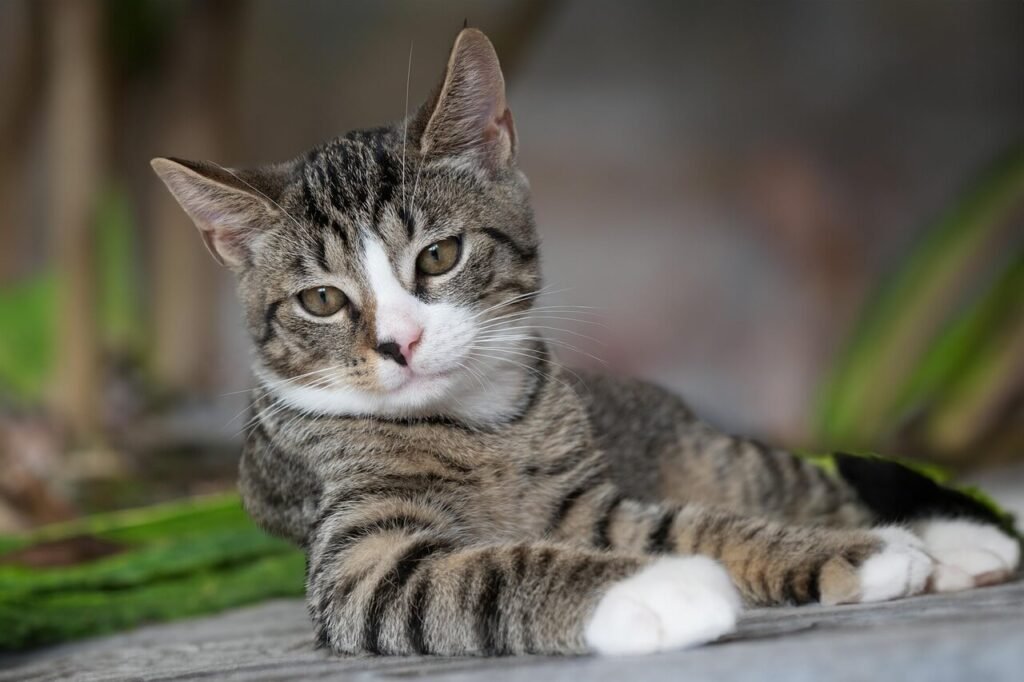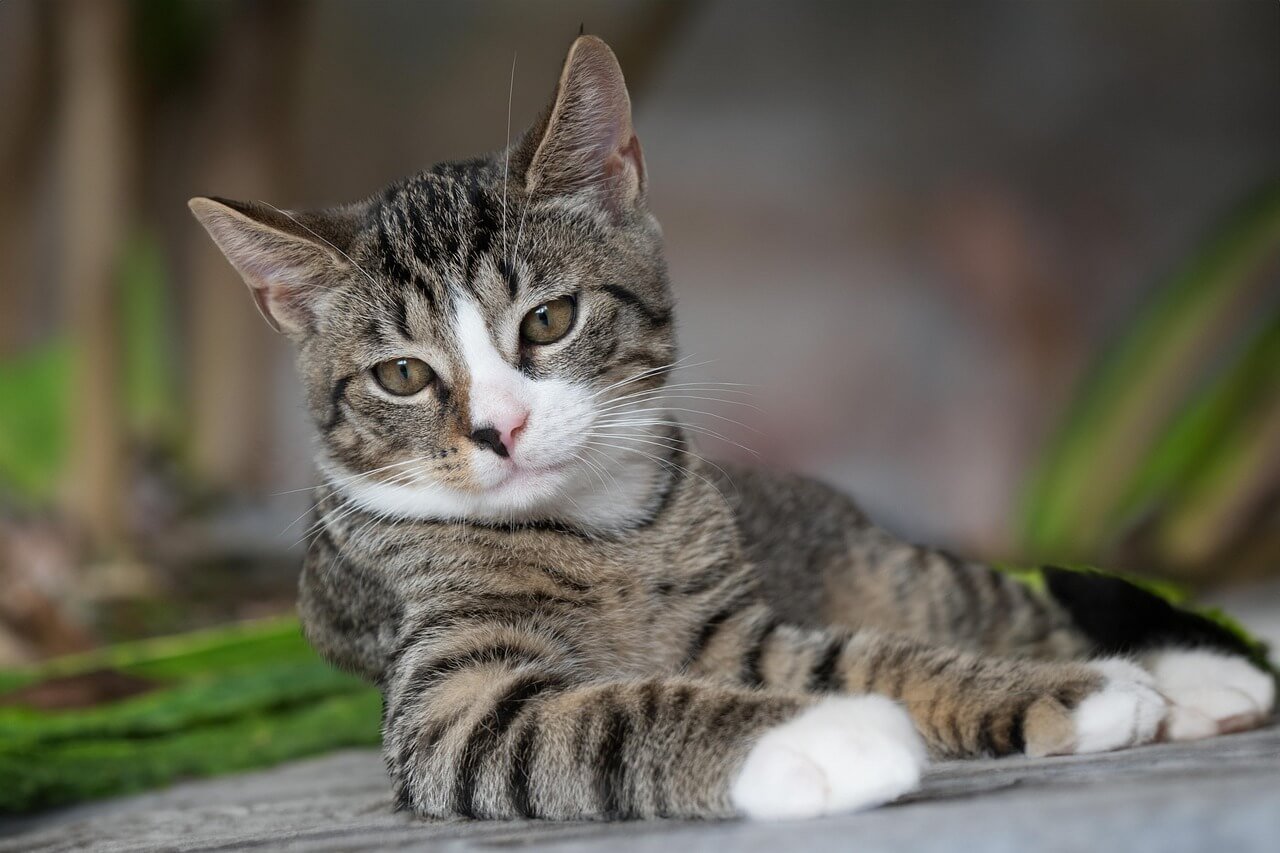The Role of Cat Vitamins in Feline Health: What Every Pet Owner Should Know
As a cat owner, you want nothing but the best for your furry companion. While a balanced diet is the foundation of good health, sometimes even the most nutritious meals may not provide all the essential nutrients your cat needs. This is where cat vitamins come into play. These supplements can help bridge nutritional gaps, boost immunity, and support overall well-being. But how do you know if your cat needs them? And what should you look for when choosing the right product? In this guide, we’ll explore everything you need to know about cat vitamins and how they can benefit your beloved pet.
Key Benefits of Cat Vitamins
Adding vitamins to your cat’s diet can offer a range of benefits, especially if your feline friend has specific health concerns or dietary deficiencies. Here are some of the most notable advantages:
Improved Immune Function
Certain vitamins, like Vitamin C and E, can strengthen your cat’s immune system, helping them fight off infections more effectively.Enhanced Skin and Coat Health
Omega-3 fatty acids and biotin are known to promote shiny fur and reduce skin irritations, keeping your cat looking and feeling their best.Stronger Bones and Joints
Vitamins like D and calcium supplements support bone density and joint health, which is particularly important for older cats or those with arthritis.Better Digestive Health
Probiotics and digestive enzymes can improve gut health, reducing issues like constipation or diarrhea.Increased Energy Levels
B-complex vitamins play a crucial role in energy metabolism, helping your cat stay active and playful.
While cat vitamins can provide these benefits, it’s essential to consult your veterinarian before introducing any new supplement to ensure it’s appropriate for your cat’s specific needs.
Common Signs Your Cat May Need Vitamins
Sometimes, your cat’s behavior or physical condition can indicate a potential nutrient deficiency. If you notice any of the following signs, it might be worth considering adding cat vitamins to their diet:
Dull or Patchy Coat
A lackluster coat or excessive shedding could signal a deficiency in essential fatty acids or biotin.Frequent Illnesses
If your cat seems to catch colds or infections more often than usual, their immune system might benefit from a vitamin boost.Lethargy or Weakness
Low energy levels could indicate a lack of B vitamins, which are vital for energy production.Brittle Claws or Weak Bones
Issues like cracked nails or difficulty jumping may point to insufficient calcium or Vitamin D.Digestive Problems
Persistent digestive issues such as vomiting or diarrhea might suggest a need for probiotics or enzyme supplements.
If you observe any of these symptoms, it’s a good idea to discuss them with your vet. They can help determine whether a vitamin supplement is necessary or if there’s another underlying issue.
Check this guide 👉Ingredients to Avoid in Cat Food: Best 7 Health Tips!
Check this guide 👉Homemade Cat Food Recipes: Best 7 Expert Tips!
Check this guide 👉Cat Food for Constipation: Best 7 Expert Tips!

Essential Vitamins for Cats | Benefits |
|---|---|
Vitamin A | Supports vision and immune function |
Vitamin B Complex | Boosts energy and metabolism |
Vitamin C | Strengthens the immune system |
Vitamin D | Promotes strong bones and teeth |
Omega-3 Fatty Acids | Improves skin, coat, and joint health |
Signs of Deficiency | Possible Solutions |
|---|---|
Dry, flaky skin | Add Omega-3 supplements |
Frequent infections | Consider Vitamin C or E supplements |
Lethargy | Introduce B-complex vitamins |
Brittle claws | Include calcium and Vitamin D |
Poor digestion | Try probiotics or digestive enzymes |
How to Choose the Right Cat Vitamins
With so many options on the market, selecting the right cat vitamins can feel overwhelming. Here are some tips to help you make an informed decision:
Consult Your Veterinarian
Always seek professional advice before starting any new supplement regimen.Check the Ingredients List
Look for high-quality, natural ingredients and avoid products with unnecessary fillers or artificial additives.Consider Your Cat’s Age
Kittens, adult cats, and senior cats have different nutritional needs, so choose a product tailored to your cat’s life stage.Focus on Specific Needs
If your cat has a particular health issue, such as joint pain or a dull coat, opt for vitamins that address those concerns.Avoid Over-Supplementation
Too much of certain vitamins can be harmful, so stick to the recommended dosage and avoid doubling up on nutrients already present in their food.
By taking these factors into account, you can find a vitamin supplement that supports your cat’s unique health requirements.
Potential Risks of Cat Vitamins
While cat vitamins can be beneficial, it’s important to use them responsibly. Over-supplementation or incorrect usage can lead to unintended consequences. Here are some risks to be aware of:
Toxicity from Overdose
Fat-soluble vitamins like A and D can accumulate in the body, leading to toxicity if given in excess.Interactions with Medications
Some vitamins may interfere with prescription medications, so always inform your vet about any supplements you’re using.Allergic Reactions
Certain ingredients in vitamin supplements may trigger allergic responses in sensitive cats.Masking Underlying Health Issues
Relying solely on vitamins without addressing the root cause of symptoms can delay proper treatment.Digestive Upset
Introducing new supplements too quickly can upset your cat’s stomach, causing vomiting or diarrhea.
To minimize risks, always follow your vet’s guidance and monitor your cat closely after starting any new supplement.
Natural Sources of Essential Nutrients
While cat vitamins can be a helpful supplement, many essential nutrients can also be found in natural food sources. Incorporating these into your cat’s diet can provide a more holistic approach to their health. Here are some nutrient-rich foods and their benefits:
Cooked Fish (Salmon or Tuna)
Rich in Omega-3 fatty acids, cooked fish supports skin, coat, and joint health.Pumpkin Puree
A great source of fiber, pumpkin puree aids digestion and helps with hairball control.Eggs (Cooked)
Eggs are packed with protein and biotin, promoting muscle strength and a shiny coat.Spinach (In Moderation)
Spinach contains vitamins A, C, and K, which support immune function and overall vitality.Blueberries
These antioxidant-rich berries can boost your cat’s immune system and provide a tasty treat.
By incorporating these natural foods into your cat’s diet, you can complement their nutritional intake without relying solely on supplements. Always introduce new foods gradually and consult your vet to ensure they’re safe for your cat.
Common Myths About Cat Vitamins
There are several misconceptions about cat vitamins that can lead to confusion among pet owners. Understanding the truth behind these myths can help you make informed decisions about your cat’s health.
Myth: All Cats Need Vitamin Supplements
Fact: Many cats get all the nutrients they need from a balanced diet, making supplements unnecessary in most cases.Myth: More Vitamins Mean Better Health
Fact: Over-supplementation can lead to toxicity and other health issues, so moderation is key.Myth: Human Multivitamins Are Safe for Cats
Fact: Human vitamins often contain ingredients that are harmful to cats, such as xylitol or excessive doses of certain nutrients.Myth: Vitamins Can Replace Veterinary Care
Fact: While vitamins can support health, they are not a substitute for professional medical treatment or diagnosis.Myth: Homemade Diets Provide All Necessary Nutrients
Fact: Homemade diets often lack essential nutrients unless carefully planned and supplemented under veterinary guidance.
Understanding these myths can help you avoid common pitfalls and ensure your cat receives the best possible care.
How to Administer Cat Vitamins Effectively
Administering cat vitamins can sometimes be challenging, especially if your cat is picky or resistant. Here are some tips to make the process easier and more effective:
Mix with Wet Food
Hiding vitamins in wet food can mask the taste and make it more appealing to your cat.Use Pill Pockets
Pill pockets are soft treats designed to hide supplements, making them easier to give.Crush and Mix (If Allowed)
Some vitamins can be crushed and mixed with food, but always check the label first to ensure this won’t affect efficacy.Reward with Treats
Offering a favorite treat after giving a vitamin can create a positive association and reduce resistance over time.Stay Calm and Patient
Cats can sense stress, so staying calm during administration will help keep them relaxed.
With patience and creativity, you can find a method that works for both you and your cat. Remember, consistency is key to seeing the benefits of any supplement regimen.
Frequently Asked Questions About Cat Vitamins
Can I give my cat human vitamins?
No, human vitamins are not safe for cats and can even be toxic. Always use products specifically formulated for felines.
How do I know if my cat needs vitamins?
Look for signs like a dull coat, frequent illnesses, or lethargy. However, a vet’s diagnosis is the best way to confirm a deficiency.
Are cat vitamins safe for kittens?
Some vitamins are safe for kittens, but it’s crucial to choose products designed for their developmental needs. Always consult your vet first.
Can I mix cat vitamins with food?
Yes, many vitamins can be mixed with wet or dry food. Check the instructions on the product packaging for guidance.
How long does it take to see results?
Results vary depending on the vitamin and your cat’s condition, but improvements may take weeks to become noticeable.
Final Thoughts: Supporting Your Cat’s Health with Vitamins
Incorporating cat vitamins into your pet’s routine can be a great way to enhance their overall health and well-being. However, it’s essential to approach supplementation thoughtfully and under the guidance of a veterinarian. By understanding your cat’s unique needs and monitoring their response to any new supplement, you can ensure they live a happy, healthy life. Remember, a proactive approach to nutrition is one of the best gifts you can give your feline companion.
Dog Tapeworm Life Cycle: Best 7 Expert Tips! – Learn how tapeworms infect dogs, spot symptoms, and break the cycle with expert prevention strategies.
Anxious Cat Body Language: Best 7 Expert Tips! – Learn to spot signs of stress, understand triggers, and help your cat feel safe and relaxed.
Anxious Dog Body Language: Best 7 Expert Tips! – Learn to spot signs of anxiety, respond effectively, and help your dog feel safe and secure.
Is Breeding Dogs Bad? Best 7 Expert Tips! – Explore the ethics, benefits, and risks of dog breeding to make informed decisions for a better future.





